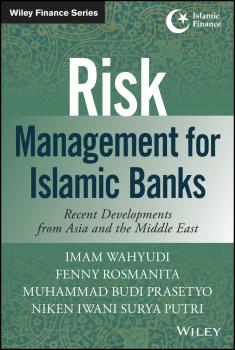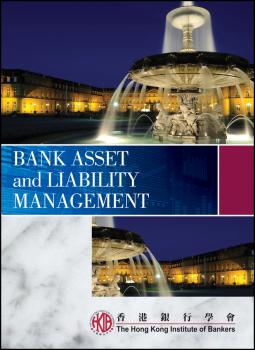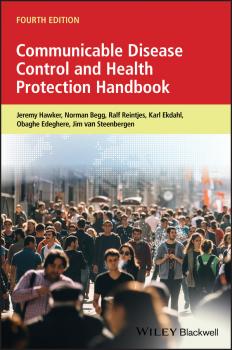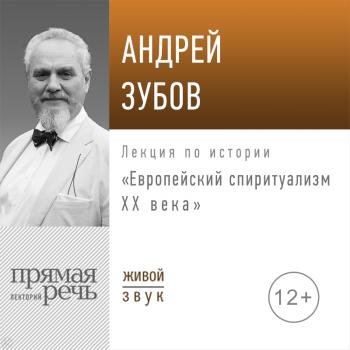MREADZ.COM - много разных книг на любой вкус
Скачивание или чтение онлайн электронных книг.Advances in Comparative Survey Methods
Covers the latest methodologies and research on international comparative surveys with contributions from noted experts in the field Advances in Comparative Survey Methodology examines the most recent advances in methodology and operations as well as the technical developments in international survey research. With contributions from a panel of international experts, the text includes information on the use of Big Data in concert with survey data, collecting biomarkers, the human subject regulatory environment, innovations in data collection methodology and sampling techniques, use of paradata across the survey lifecycle, metadata standards for dissemination, and new analytical techniques. This important resource: Contains contributions from key experts in their respective fields of study from around the globe Highlights innovative approaches in resource poor settings, and innovative approaches to combining survey and other data Includes material that is organized within the total survey error framework Presents extensive and up-to-date references throughout the book Written for students and academic survey researchers and market researchers engaged in comparative projects, this text represents a unique collaboration that features the latest methodologies and research on global comparative surveys.
The American Cancer Society's Oncology in Practice
Developed by the American Cancer Society this new textbook designed for a wide range of learners and practitioners comprehensively addresses all aspects of clinical management for cancer taking a balanced, authoritative and, -where possible- evidence-based stance and may be used in conjunction with the book, The American Cancer Society's Principles of Oncology: Prevention to Survivorship. Edited by leading clinicians in the field and a stellar contributor list from the US and Europe, this book is written in an easy to understand style by multidisciplinary teams of medical oncologists, radiation oncologists and other specialists, reflecting day-to-day decision-making and clinical practice. Input from pathologists, surgeons, radiologists, and other specialists is included wherever relevant and comprehensive treatment guidelines are provided by expert contributors where there is no standard recognized treatment. This book is an ideal resource for anyone seeking a practical understanding of the field of oncology.
Risk Management for Islamic Banks
Gain insight into the unique risk management challenges within the Islamic banking system Risk Management for Islamic Banks: Recent Developments from Asia and the Middle East analyzes risk management strategies in Islamic banking, presented from the perspectives of different banking institutions. Using comprehensive global case studies, the book details the risks involving various banking institutions in Indonesia, Malaysia, UAE, Bahrain, Pakistan, and Saudi Arabia, pointing out the different management strategies that arise as a result of Islamic banking practices. Readers gain insight into risk management as a comprehensive system, and a process of interlinked continuous cycles that integrate into every business activity within Islamic banks. The unique processes inherent in Islamic banking bring about complex risks not experienced by traditional banks. From Shariah compliance, to equity participation contracts, to complicated sale contracts, Islamic banks face unique market risks. Risk Management for Islamic Banks covers the creation of an appropriate risk management environment, as well as a stage-based implementation strategy that includes risk identification, measurement, mitigation, monitoring, controlling, and reporting. The book begins with a discussion of the philosophy of risk management, then delves deeper into the issue with topics like: Risk management as an integrated system The history, framework, and process of risk management in Islamic banking Financing, operational, investment, and market risk Shariah compliance and associated risk The book also discusses the future potential and challenges of Islamic banking, and outlines the risk management pathway. As an examination of the wisdom, knowledge, and ideal practice of Islamic banking, Risk Management for Islamic Banks contains valuable insights for those active in the Islamic market.
The Encyclopedia of Human Resource Management, Volume 3
The three volumes in The Encyclopedia of Human Resource Management offer a comprehensive review of the essential issues and most important information available on the topic. Each volume in the encyclopedia contains contributions from some of the most celebrated names in the field of human resource management (HRM) and addresses the myriad challenges faced by today's human resource professionals. Volume 3 highlights three main topics HR professionals have identified as critical issues in today's workplace: Leadership and Learning; Strategy and Measurement; and The Evolution of Human Resources. Many of the articles in this volume provide an in-depth discussion of a current human resource topic while others introduce a new way of approaching a familiar HR challenge. Each article is designed to stimulate critical thinking and reflection. The topics covered include: Best Practices in Leadership Development; Leadership is Going Global; Web 2.0 Applications in Corporate Training; The Social Construction of Productive Organizations; Leadership Versatility; Strategy and Measurement; Strategic Business Partner Role; Human Resource Metrics; The HR Transition to Strategic Partner; Workplace Bullying; Lost Wisdom, Lost ROI; The Role of HR in Fostering Innovation in Organizations; Closing Critical Skills Gaps; Employee Engagement and Corporate Social Responsibility; The Implications of Situational Strength for HRM; and more. The Encyclopedia of Human Resource Management gives human resource professionals the knowledge, information, and tools needed to implement the best practices in the field.
Bank Asset and Liability Management
Hong Kong Institute of Bankers (HKIB)
An in-depth look at how banks and financial institutions manage assets and liabilities Created for banking and finance professionals with a desire to expand their management skillset, this book focuses on how banks manage assets and liabilities, set up governance structures to minimize risks, and approach such critical areas as regulatory disclosures, interest rates, and risk hedging. It was written by the experts at the world-renowned Hong Kong Institute of Bankers, an organization dedicated to providing the international banking community with education and training. Explains bank regulations and the relationship with monetary authorities, statements, and disclosures Considers the governance structure of banks and how it can be used to manage assets and liabilities Offers strategies for managing assets and liabilities in such areas as loan and investment portfolios, deposits, and funds Explores capital and liquidity, including current standards under Basel II and Basel III, funding needs, and stress testing Presents guidance on managing interest rate risk, hedging, and securitization
Communicable Disease Control and Health Protection Handbook
The essential guide to controlling and managing today’s communicable diseases The fourth edition of Communicable Disease Control and Health Protection Handbook offers public health workers of all kinds an authoritative and up-to-date guide to current protocols surrounding the identification and control of infectious diseases. With its concise, accessible design, the book is a practical tool that can be relied upon to explain topics ranging from the basic principles of communicable disease control to recent changes and innovations in health protection practice. Major syndromes and individual infections are insightfully addressed, while the authors also outline the WHO’s international health regulations and the organizational arrangements in place in all EU nations. New to the fourth edition are chapters on Ebola, the Zika virus, and other emerging pandemics. In addition, new writing on healthcare-associated infection, migrant and refugee health, and the importance of preparedness make this an essential and relevant text for all those in the field. This vital resource: Reflects recent developments in the science and administration of health protection practice Covers topics such as major syndromes, control of individual infections, main services and activities, arrangements for all European countries, and much more Includes new chapters on the Zika virus, Schistosomiasis, Coronavirus including MERS + SARS, and Ebola Follows a format designed for ease of use and everyday consultation Created to provide public and environmental health practitioners, physicians, epidemiologists, infection control nurses, microbiologists and trainees with a straightforward – yet informative – resource, Communicable Disease Control and Health Protection Handbook is a practical companion for all those working the field today.
Getting Your Money's Worth from Training and Development
This book fills a need for trainers, participants, and managers by providing a practical guide on how to get the most from a learning and development program. The book offers proven tools that help training participants get the most from the programs and includes the tools necessary to the transfer and application of critical new learning. The book explains how to create an environment that supports the participant's successful transition from program learning to producing valuable results. The tools and suggestions are a formula for success that will add value to virtually any learning and development initiative.
Лекция «Европейский спиритуализм ХХ века»
– Человек есть дух, – писал философ-спиритуалист Луи Лавель. – Духовность – единственный род активности, из-за которой он заслуживает называться человеком. В осуществлении своей свободы человек создает не вещи, а смыслы вещей. В начале ХХ века в Европе сложилось сообщество антипозитивистских мыслителей, которых можно объединить общим движением под названием «спиритуализм». Они, как и экзистенциалисты, утверждали, что человек не сводится только к природе, но для них был характерен напряжённый интерес к нравственным и эстетическим ценностям человека, к его свободе. Спиритуалисты во многом были близки к экзистенциалистам, но они обращали особое внимание на Бога, причём, в отличие от романтиков, утверждали его принципиальную трансцендентность и абсолютность. Анри Бергсон – лауреат нобелевской премии 1928 г., христианский философ-персоналист Эммануэль Мунье, деятель Сопротивления и узник нацистских тюрем и близкий к ним иудейский мыслитель, переводчик Танаха (Ветхого Завета) на немецкий язык, которому он посвятил сорок лет жизни, Мартин Бубер станут героями этой последней лекции в цикле «История Западной философии».
Лекция «О теле души»
Людмила Улицкая действует в очень хорошей литературной традиции. Она сочетает биологическое образование с занятием сугубо гуманитарным – с писательством. Именно поэтому её прозу так часто упрекают в физиологизме. И именно поэтому она так пророчески описывает метафизику тела и, если угодно, телесные проблемы духа. Я думаю, что наш с ней разговор на эти темы будет особенно интересен так называемым «сомневающимся». Есть ведь «постигшие», которые уверовали уже окончательно либо в отсутствие Бога, либо в его существование. И вот с ними спорить неинтересно. А вот мы с Людмилой Улицкой будем разговаривать о том, что не совсем понятно. О тех точках, где душа проступает в теле, и о том, как она себя в нём осуществляет. Поскольку Улицкая, начиная с ранней своей прозы, касалась очень мучительных и запретных тем, и проза её всегда была на грани и за гранью откровенности, разговор обещает быть таким же: откровенным, мучительным и жгуче-интересным. В рамках III Литературного фестиваля лектория «Прямая речь» в «Гоголь-центре».
«Антропология 2.0» Public talk
Дмитрий Дибров – один из создателей современного российского телевидения, когда-то вёл культовую программу «Антропология». Программу, в которой он буквально интеллектуально потрошил приходящих к нему, большей частью музыкантов, но иногда и философов, иногда и политиков, расспрашивая их о том, что ему было действительно интересно. Все мечтали о том, чтобы появился человек, который распотрошил бы когда-нибудь самого Диброва. Вам представляется уникальный шанс увидеть, как я буду пытаться это сделать. Легендарный Дибров, который давно уже «стал миллионером», придет к нам на фестиваль «Прямая речь» и будет с предельной откровенностью отвечать на мои и ваши вопросы. А уж сумеем ли мы узнать о нем что-нибудь новое – это зависит только от нас. Дежурный по фестивалю Дмитрий Быков В рамках III Литературного фестиваля лектория «Прямая речь» в «Гоголь-центре».









